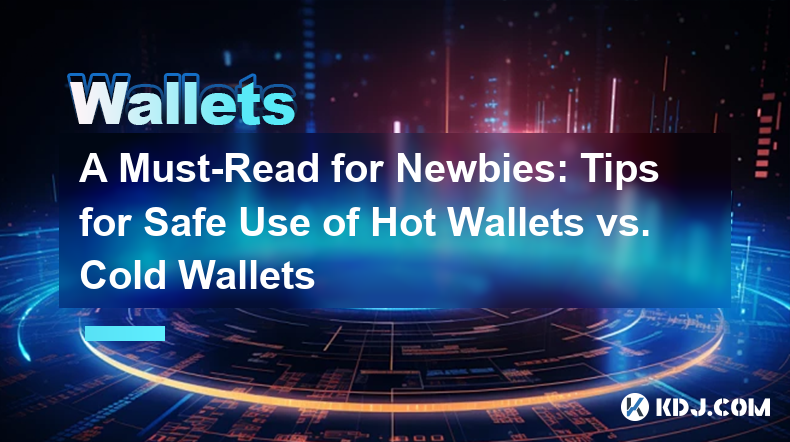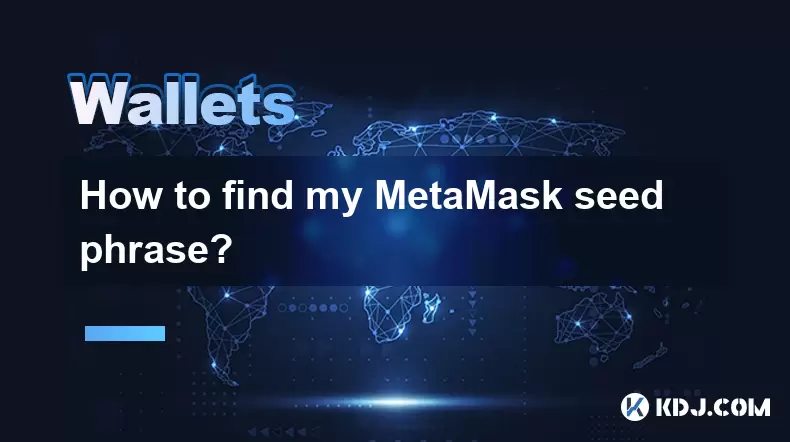-
 Bitcoin
Bitcoin $107,810.8710
-1.45% -
 Ethereum
Ethereum $2,531.4386
-1.75% -
 Tether USDt
Tether USDt $1.0000
-0.03% -
 XRP
XRP $2.2542
-0.99% -
 BNB
BNB $659.1350
-0.50% -
 Solana
Solana $148.5456
-2.40% -
 USDC
USDC $0.9999
-0.02% -
 TRON
TRON $0.2868
-0.44% -
 Dogecoin
Dogecoin $0.1666
-3.65% -
 Cardano
Cardano $0.5751
-2.36% -
 Hyperliquid
Hyperliquid $37.6845
-5.51% -
 Bitcoin Cash
Bitcoin Cash $494.9448
-0.65% -
 Sui
Sui $2.8396
-3.31% -
 Chainlink
Chainlink $13.2423
-2.59% -
 UNUS SED LEO
UNUS SED LEO $9.0482
0.02% -
 Stellar
Stellar $0.2467
-2.44% -
 Avalanche
Avalanche $17.8165
-3.63% -
 Shiba Inu
Shiba Inu $0.0...01158
-2.41% -
 Toncoin
Toncoin $2.7397
-3.42% -
 Hedera
Hedera $0.1560
-2.73% -
 Litecoin
Litecoin $85.8559
-2.34% -
 Monero
Monero $315.3710
-2.30% -
 Dai
Dai $1.0001
0.00% -
 Polkadot
Polkadot $3.3443
-2.03% -
 Ethena USDe
Ethena USDe $1.0001
0.01% -
 Bitget Token
Bitget Token $4.2888
-3.73% -
 Uniswap
Uniswap $7.3388
-1.57% -
 Aave
Aave $278.2986
-3.05% -
 Pepe
Pepe $0.0...09807
-3.67% -
 Pi
Pi $0.4563
-2.39%
A Must-Read for Newbies: Tips for Safe Use of Hot Wallets vs. Cold Wallets
When choosing between hot and cold wallets for crypto storage, consider your needs: hot wallets are convenient for daily use, while cold wallets offer superior security for long-term holdings.
Apr 17, 2025 at 04:49 pm

When entering the world of cryptocurrencies, one of the first decisions you'll face is choosing between a hot wallet and a cold wallet for storing your digital assets. This choice is crucial for the security and accessibility of your funds. In this article, we'll delve into the differences between hot and cold wallets, providing tips for their safe use, and helping you understand which option might be best for your needs.
Understanding Hot Wallets
Hot wallets are digital wallets that are connected to the internet. They are designed for ease of use and quick transactions, making them ideal for everyday spending and trading. Examples include software wallets like MetaMask, mobile wallets like Trust Wallet, and web-based wallets like Coinbase Wallet.
Hot wallets are convenient because they allow you to access your cryptocurrencies from anywhere with an internet connection. However, this convenience comes with a trade-off: increased vulnerability to cyber attacks. Since hot wallets are online, they are more susceptible to hacking attempts, phishing scams, and malware.
To use a hot wallet safely, follow these steps:
- Choose a reputable provider: Research and select a wallet from a well-known and trusted provider. Look for reviews and user feedback to gauge the reliability and security of the wallet.
- Enable two-factor authentication (2FA): This adds an extra layer of security by requiring a second form of verification, such as a text message or an authentication app, when logging in or making transactions.
- Use strong, unique passwords: Avoid using easily guessable passwords. Instead, opt for a combination of letters, numbers, and special characters. Consider using a password manager to generate and store complex passwords.
- Keep your software updated: Regularly update your wallet software to ensure you have the latest security patches and features.
- Be cautious of phishing attempts: Always verify the authenticity of emails and websites before entering your wallet credentials. Never click on suspicious links or download attachments from unknown sources.
Understanding Cold Wallets
Cold wallets, on the other hand, are offline storage solutions that offer a higher level of security. They are not connected to the internet, which significantly reduces the risk of hacking and unauthorized access. Common types of cold wallets include hardware wallets like Ledger and Trezor, and paper wallets.
Cold wallets are ideal for storing large amounts of cryptocurrencies that you don't need to access frequently. They provide peace of mind by keeping your assets safe from online threats. However, they can be less user-friendly and require more technical know-how to set up and use.
To use a cold wallet safely, follow these steps:
- Purchase from the official manufacturer: To avoid counterfeit products, buy your hardware wallet directly from the manufacturer or authorized retailers.
- Set up your wallet securely: When initializing your hardware wallet, do so on a clean, offline computer to prevent malware infection. Follow the manufacturer's instructions carefully.
- Store your recovery phrase securely: Your recovery phrase is crucial for restoring your wallet if it's lost or damaged. Write it down and store it in a safe, secure location, such as a fireproof safe or a safety deposit box.
- Regularly back up your wallet: If you're using a paper wallet, make multiple copies and store them in different secure locations. For hardware wallets, ensure you have a backup of your recovery phrase.
- Be cautious when connecting your wallet: Only connect your hardware wallet to trusted devices and avoid using public computers or networks.
Comparing Hot and Cold Wallets
When deciding between a hot wallet and a cold wallet, consider your specific needs and risk tolerance. Hot wallets are better suited for:
- Frequent trading and spending
- Small amounts of cryptocurrencies
- Users who prioritize convenience and accessibility
On the other hand, cold wallets are ideal for:
- Long-term storage of large amounts of cryptocurrencies
- Users who prioritize security and are willing to sacrifice some convenience
- Those who want to protect their assets from online threats
Tips for Using Both Hot and Cold Wallets
Many cryptocurrency users opt for a hybrid approach, using both hot and cold wallets to balance security and convenience. Here are some tips for safely using both types of wallets:
- Use a hot wallet for daily transactions: Keep only the amount of cryptocurrency you need for immediate use in your hot wallet. This minimizes the risk of losing a significant amount if the wallet is compromised.
- Store the majority of your assets in a cold wallet: Transfer your long-term holdings to a cold wallet to keep them safe from online threats.
- Regularly move funds between wallets: When you need to spend or trade more cryptocurrency, transfer it from your cold wallet to your hot wallet. This helps maintain the security of your cold wallet while ensuring you have funds available for use.
- Keep your wallets organized: Label your wallets and keep track of which cryptocurrencies are stored in each one. This helps prevent confusion and potential mistakes when managing your assets.
Additional Security Measures
Regardless of which type of wallet you choose, there are additional security measures you can take to protect your cryptocurrencies:
- Use a VPN: When accessing your hot wallet online, consider using a virtual private network (VPN) to encrypt your internet connection and protect your data from prying eyes.
- Monitor your wallet activity: Regularly check your wallet's transaction history to detect any unauthorized activity. If you notice anything suspicious, take immediate action to secure your funds.
- Educate yourself on common scams: Stay informed about the latest cryptocurrency scams and phishing attempts. Knowledge is your best defense against fraudsters.
- Consider using a multisig wallet: Multisignature (multisig) wallets require multiple signatures to authorize transactions, adding an extra layer of security. This can be particularly useful for cold storage solutions.
Frequently Asked Questions
Q: Can I use both a hot wallet and a cold wallet at the same time?
A: Yes, many cryptocurrency users employ a hybrid approach, using a hot wallet for daily transactions and a cold wallet for long-term storage. This allows you to balance convenience and security.
Q: How often should I transfer funds from my cold wallet to my hot wallet?
A: The frequency of transfers depends on your needs. If you frequently trade or spend cryptocurrencies, you might transfer funds weekly or monthly. For less frequent use, you might transfer funds as needed, ensuring you keep only what you need in your hot wallet.
Q: What should I do if I lose my cold wallet or forget my recovery phrase?
A: If you lose your cold wallet, you can use your recovery phrase to restore your wallet on a new device. However, if you forget your recovery phrase, there's no way to recover your funds. This underscores the importance of securely storing your recovery phrase.
Q: Are there any fees associated with using hot and cold wallets?
A: Hot wallets may charge fees for transactions, depending on the cryptocurrency and the network congestion. Cold wallets typically don't have fees for storing cryptocurrencies, but you may incur fees when transferring funds to or from your cold wallet. Always check the fee structure of your chosen wallet provider.
Disclaimer:info@kdj.com
The information provided is not trading advice. kdj.com does not assume any responsibility for any investments made based on the information provided in this article. Cryptocurrencies are highly volatile and it is highly recommended that you invest with caution after thorough research!
If you believe that the content used on this website infringes your copyright, please contact us immediately (info@kdj.com) and we will delete it promptly.
- Bitcoin Solaris Market Launch: A New Dawn or Just Another Altcoin?
- 2025-07-08 20:30:12
- Bitcoin, Memecoin Mania, and the All-Time High Hunt: What's Next?
- 2025-07-08 20:30:12
- Byrq Coin: Scam or Savior? A Deep Dive Review
- 2025-07-08 20:50:12
- Shiba Inu's Burn Rate Bonanza: Can Crypto Burns Ignite a Price Rally?
- 2025-07-08 20:50:12
- Telekom, Injective, and Validators: A Deep Dive into Network Security and Growth
- 2025-07-08 21:10:12
- ROM: Golden Age – Half a Million Pre-Registrations and Crypto Loot!
- 2025-07-08 21:15:12
Related knowledge

MetaMask not connecting to websites
Jul 08,2025 at 09:35pm
<h3>Common Reasons Why MetaMask Fails to Connect</h3><p>When MetaMask not connecting to websites, several potential causes can be id...

How to find my MetaMask seed phrase?
Jul 08,2025 at 09:21pm
<h3>Understanding the MetaMask Seed Phrase</h3><p>The MetaMask seed phrase, also known as a recovery phrase, is a sequence of 12 or ...

How to cancel a pending transaction in Phantom wallet?
Jul 03,2025 at 07:21pm
<h3>Understanding Pending Transactions in Phantom Wallet</h3><p>A pending transaction in the Phantom wallet occurs when a user initi...

How to see the estimated value of my tokens in Phantom wallet?
Jul 04,2025 at 12:21am
<h3>What is Phantom Wallet?</h3><p>Phantom wallet is one of the most popular cryptocurrency wallets designed for the Solana blockcha...

How to lock my Phantom wallet extension?
Jul 03,2025 at 11:14am
<h3>What Is the Phantom Wallet and Why Lock It?</h3><p>The Phantom wallet is a popular non-custodial cryptocurrency wallet designed ...

Does Phantom wallet offer two-factor authentication (2FA)?
Jul 03,2025 at 09:00am
<h3>Understanding Phantom Wallet and Its Security Features</h3><p>Phantom wallet is a widely used non-custodial cryptocurrency walle...

MetaMask not connecting to websites
Jul 08,2025 at 09:35pm
<h3>Common Reasons Why MetaMask Fails to Connect</h3><p>When MetaMask not connecting to websites, several potential causes can be id...

How to find my MetaMask seed phrase?
Jul 08,2025 at 09:21pm
<h3>Understanding the MetaMask Seed Phrase</h3><p>The MetaMask seed phrase, also known as a recovery phrase, is a sequence of 12 or ...

How to cancel a pending transaction in Phantom wallet?
Jul 03,2025 at 07:21pm
<h3>Understanding Pending Transactions in Phantom Wallet</h3><p>A pending transaction in the Phantom wallet occurs when a user initi...

How to see the estimated value of my tokens in Phantom wallet?
Jul 04,2025 at 12:21am
<h3>What is Phantom Wallet?</h3><p>Phantom wallet is one of the most popular cryptocurrency wallets designed for the Solana blockcha...

How to lock my Phantom wallet extension?
Jul 03,2025 at 11:14am
<h3>What Is the Phantom Wallet and Why Lock It?</h3><p>The Phantom wallet is a popular non-custodial cryptocurrency wallet designed ...

Does Phantom wallet offer two-factor authentication (2FA)?
Jul 03,2025 at 09:00am
<h3>Understanding Phantom Wallet and Its Security Features</h3><p>Phantom wallet is a widely used non-custodial cryptocurrency walle...
See all articles

























































































